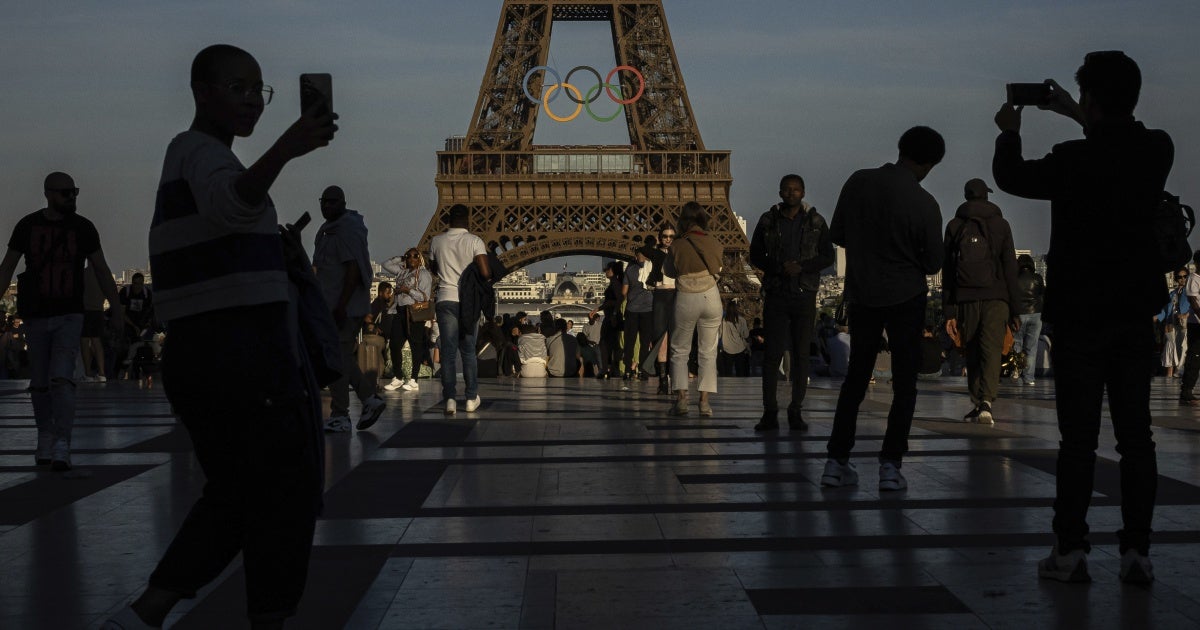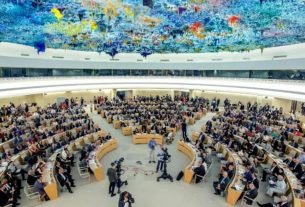(Paris) – The Olympic and Paralympic Games in France should usher in reforms to ensure tolerance, nondiscrimination, and the defense of fundamental human rights, Human Rights Watch said today in a new guide published for reporters covering the Games. The Paris 2024 Summer Games will hold its opening ceremony on the Seine River on July 26, 2024.
The 35-page “Reporters’ Guide: 2024 Paris Summer Olympic and Paralympic Games” summarizes rights concerns relevant to both the Paris Games and broader human rights concerns in France. The guide also describes the role of the International Olympic Committee (IOC) and other Olympic committees and their relevance to promoting human rights at the Paris Olympics.
“The Olympic Games are a good moment to shine a light on France’s deteriorating rights record,” said Bénédicte Jeannerod, France director at Human Rights Watch. “For example, contrary to Olympic values of inclusion and nondiscrimination, racialized minorities, including migrants, face systemic abuse and discrimination in France.”
The upcoming Games take place against the backdrop of the recent snap legislative elections in France called by President Emmanuel Macron following the victory of the far-right National Rally (Rassemblement National) party in the June 9 European Parliament elections. The electoral campaign in France was marred by a rise in racist, xenophobic, and discriminatory rhetoric, alongside extreme political polarization. Civil society mobilized massively in favor of tolerance and nondiscrimination, and a majority of voters rejected being governed by the far-right. The new government has not yet been appointed.
The 2024 Games in Paris mark the centennial of the 1924 Paris Olympics and the third time Paris will host the Summer Games. With more than 200 countries competing at the Olympics and Paralympics, an expected 15 million tourists, and a global television audience of 5 billion, these Games are projected to be the most-watched ever.
The slogan for Paris 2024 is “Games Wide Open” or “Ouvrons grand les Jeux” in French. This motto is meant to show these Games will be more inclusive, open, and equal, including with gender parity in athlete participation.
France’s Olympic and Paralympic Games are the first to take place since the IOC adopted a human rights framework in 2022. The IOC has called Paris 2024 “the first edition of the Games that will embed human rights throughout the organisation and delivery of the event.”
But instead of raising the bar for human rights, as the Games open, there is worrying erosion of the rule of law in France and concerning reports of human rights violations.
The Olympic Charter expressly bans “discrimination of any kind” as a “fundamental principle of Olympism.” Headscarf restrictions for women athletes were overturned in global sport starting in 2014 because the ban excluded millions of women and girls from participation in sports like football and basketball.
However, in France, sporting authorities have put in place bans on French athletes wearing headscarves both at Paris 2024 and beyond, across all levels of sport. The country’s discrimination against women and girls wearing the hijab is particularly concerning given the IOC’s celebration of Paris 2024 as the first “Gender Equal Olympics.”
The effect of these bans is that women athletes from the Olympics’ own host nation are discriminated against and prevented from exercising their human rights. French Muslim women and girls who choose to wear hijab will never be able to qualify for these or future Games, since they are excluded from the necessary training and competition opportunities to reach the Olympic level. Muslim women athletes from other nations will compete at the Olympics and Paralympics wearing the hijab without restrictions.
Restrictions on fundamental freedoms are on the rise in France, with increasing limitations on freedom of expression, the right to peaceful protest, and freedom of association. The erosion of civic space is compounded by the expansion and use of invasive mass surveillance technologies, justified under the guise of security measures for events like the Olympics and Paralympics. France’s new “Olympics” surveillance law is the first of its kind in the European Union to explicitly legalize the use of controversial algorithm-driven video surveillance that risks discrimination against racialized minorities at the Games.
“International sports competitions should not have long-term negative policy consequences that reduce freedoms and basic rights for people in France and beyond,” Jeannerod said.
As thousands of national athletes arrive in Paris from all corners of the globe, the guide also covers abuse against athletes worldwide, including sexual and gender-based violence, child abuse in sport, and sex testing of women athletes. In research ranging from Japan and Haiti to Mali and India, Human Rights Watch has worked with athlete whistleblowers and survivors of abuse to report abuse and understand how sport creates systems that allow human rights abuses to flourish. Athletes and survivors are demanding reforms from national and international sport federations to put meaningful systems in place to safely report and investigate abuse.
Human Rights Watch reporters’ guide provides an overview of the human rights context in France and in global sport relevant to covering the Olympics and the Paralympics. It includes background on the Olympics and human rights, athletes who face systemic discrimination in participating in sports, communities whose members face systemic racism by French law enforcement, systemic abuses and reform efforts in the Olympic movement, and recent developments of human rights violations and cases of interest to cover.
“The true legacy of these Summer Games should not be measured only in medals or records but in the French government’s unwavering commitment to establish a lasting respect for human rights,” Jeannerod said.



